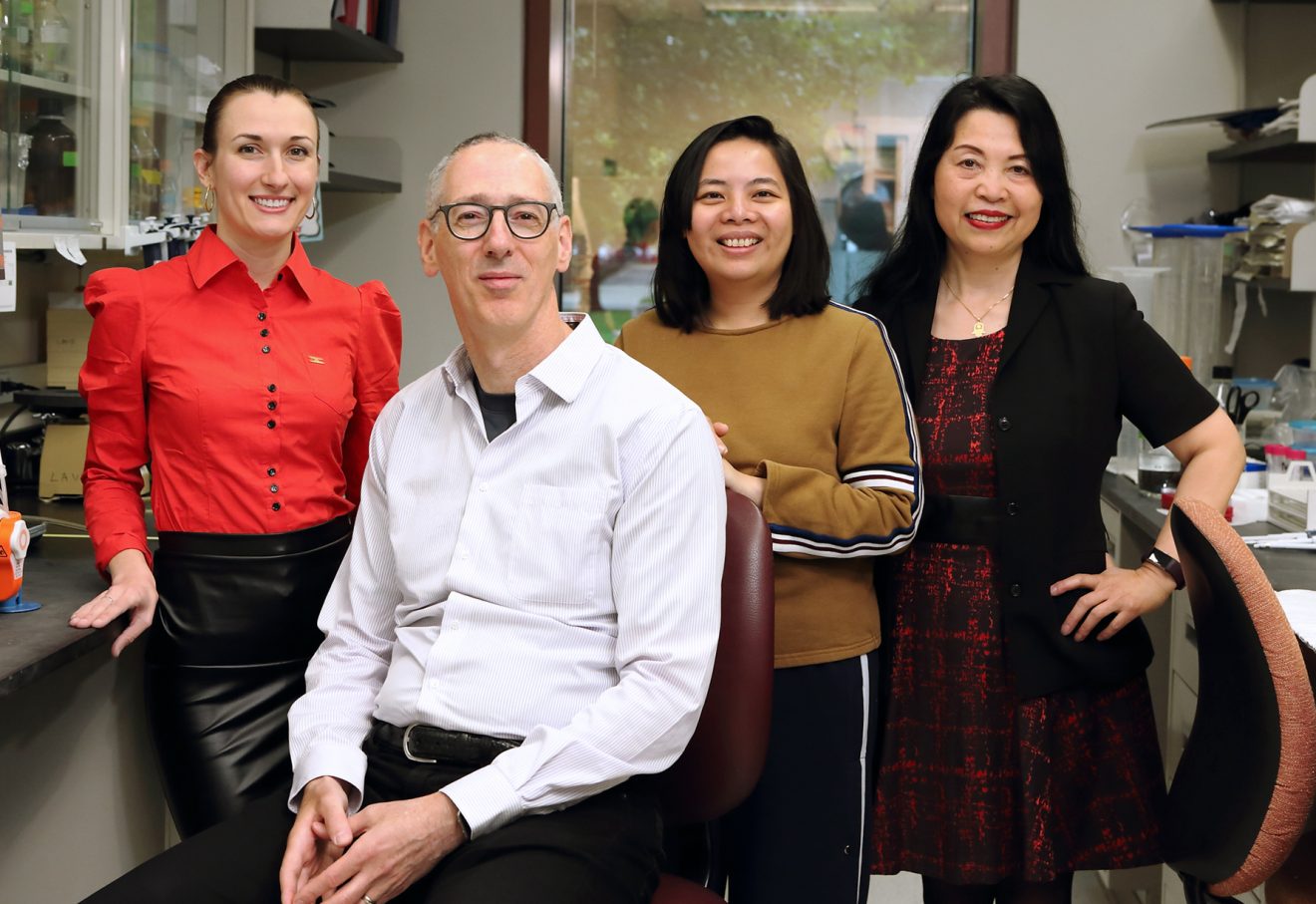June 18, 2019 | Jola Glotzer
The CBC-supported Enzyme by Design soars!
CBC Accelerator Award among grants that have contributed to almost $1 million in secured funding by a UIC spin-off company
Arnon Lavie, UIC, first pitched his translational idea to the CBC in early 2018 when he submitted a Letter of Intent for the inaugural round of the CBC Accelerator Award applications. In February, he presented the idea at a CBC Accelerator Network (CBCAN) meeting. While preparing for his presentation, he was coached by the CBC Accelerator Award team, and following his CBCAN talk, he received invaluable feedback from the audience, the Accelerator Award Review Board (ARB) and CBC staff. Soon after, Arnon was invited to submit a full proposal and in May 2018, he was announced as one of five winners of the CBC Accelerator Award.
The CBC Accelerator Award program aims to support translational research and provide university researchers with “early commercial guidance.” Accelerator Awards are designed to support the initial, and therefore highest risk, stage of commercially-directed research focused on the development of a therapeutic or an associated biomarker or diagnostic. The awards are up to $100,000 with a possibility of a renewal for an additional $150,000 for the second year.
Arnon’s idea has materialized, and now he is the founder and CEO of the startup company Enzyme by Design. The company’s goal is to introduce to the market a new form of asparginase — an enzyme used to treat acute lymphoblastic leukemia. Enzyme by Design’s asparginase is as potent as the currently used form of the enzyme, however, unlike the toxic and even lethal sides effects of the current form, it has potentially no toxicity at all.
Congratulations to Arnon, his team, and their robust and effective fundraising efforts!
UIC startup raises nearly $1M to help develop safer leukemia chemotherapy
UIC today | by Sharon Parmet | June 17, 2019

Amanda Schalk, Arnon Lavie, Hien Anh Nguyen and Ying Su are Enzyme by Design. Photo by Jenny Fontaine. Source: UICtoday
Enzyme by Design, a startup company founded by UIC researchers in the department of biochemistry and molecular genetics, recently has secured nearly $1 million in total funding to help it further develop a less toxic version of chemotherapy commonly used to treat acute lymphoblastic leukemia, the most common type of pediatric cancer.
The company has identified a safer form of asparaginase, an enzyme used in chemotherapy. The enzyme breaks down an amino acid called asparagine. Unlike healthy cells, certain cancer cells can’t produce asparagine by themselves and need to take it from the blood. Asparaginase-based chemotherapies deplete levels of asparagine in the blood, causing cancer cells to die. But currently used asparaginases often cause severe side effects, including in some rare instances, death.
“Current asparaginase chemotherapies can have toxic side effects because they are derived from bacterial sources and retain bacterial markers that the body recognizes as foreign and which the immune system attacks. The drugs can also impact the liver and pancreas and cause blood clotting, which in rare instances can be fatal,” said Arnon Lavie, president and CEO of Enzyme by Design and professor of biochemistry and molecular genetics in the UIC College of Medicine. “The drug works really well to kill cancer cells, but we need a variant without these dangerous side effects. Our version of this enzyme is based on the mammalian gene for asparaginase and lacks the side activity and is predicted to be less toxic but as effective.”
The Enzyme by Design asparaginase comes from guinea pigs and was identified by Amanda Schalk, research assistant professor in biochemistry and molecular genetics at UIC.
“We purified and characterized asparaginase candidates from different sources and found that one particular enzyme found in guinea pigs had the necessary properties for a therapeutic. We used our protein engineering expertise to further make it more human-like without compromising its tumor cell-killing ability,” said Schalk, who also is chief operating officer of Enzyme by Design. “Compared to current FDA-approved drugs of this type, our new therapeutic has shown almost no toxic side effects in mice, it effectively depletes asparagine in their blood, and it is able to kill acute lymphoblastic leukemia cells, which are responsible for the most common form of childhood cancer.”
Hien Anh Nguyen, a research assistant professor in Lavie’s lab at UIC and chief scientific officer of Enzyme by Design, tested the guinea pig enzyme in vitro on human cancer cells and in mice that were injected with human leukemia cells. In both models, the enzyme successfully depleted asparagine and killed the cancer cells. Studies conducted at UIC’s toxicology research laboratory revealed no major signs of toxicity in mice given the asparaginase.
Enzyme by Design has secured approximately $1 million in funding from several sources, including two UIC Chancellor’s Innovation Fund grants, a Chicago Biomedical Consortium grant and two National Institutes of Health small business grants. Enzyme by Design also was recently chosen as the winner of the biopharma category by MedCity INVEST — a health care investor’s conference where developers could make a pitch.
“Getting our discovery out into the world where it has a chance to help patients is very important to me,” Lavie said. “Without the funding to take our translational discovery out into the real world, it would just sit on a shelf helping nobody. We are so grateful to UIC for the opportunities they have given us, especially the Office of Technology Management, to support the commercialization of our asparaginase.”
Source:
Adapted (with modifications) from the UIC today, by Sharon Parmet, published on June 17, 2019.
